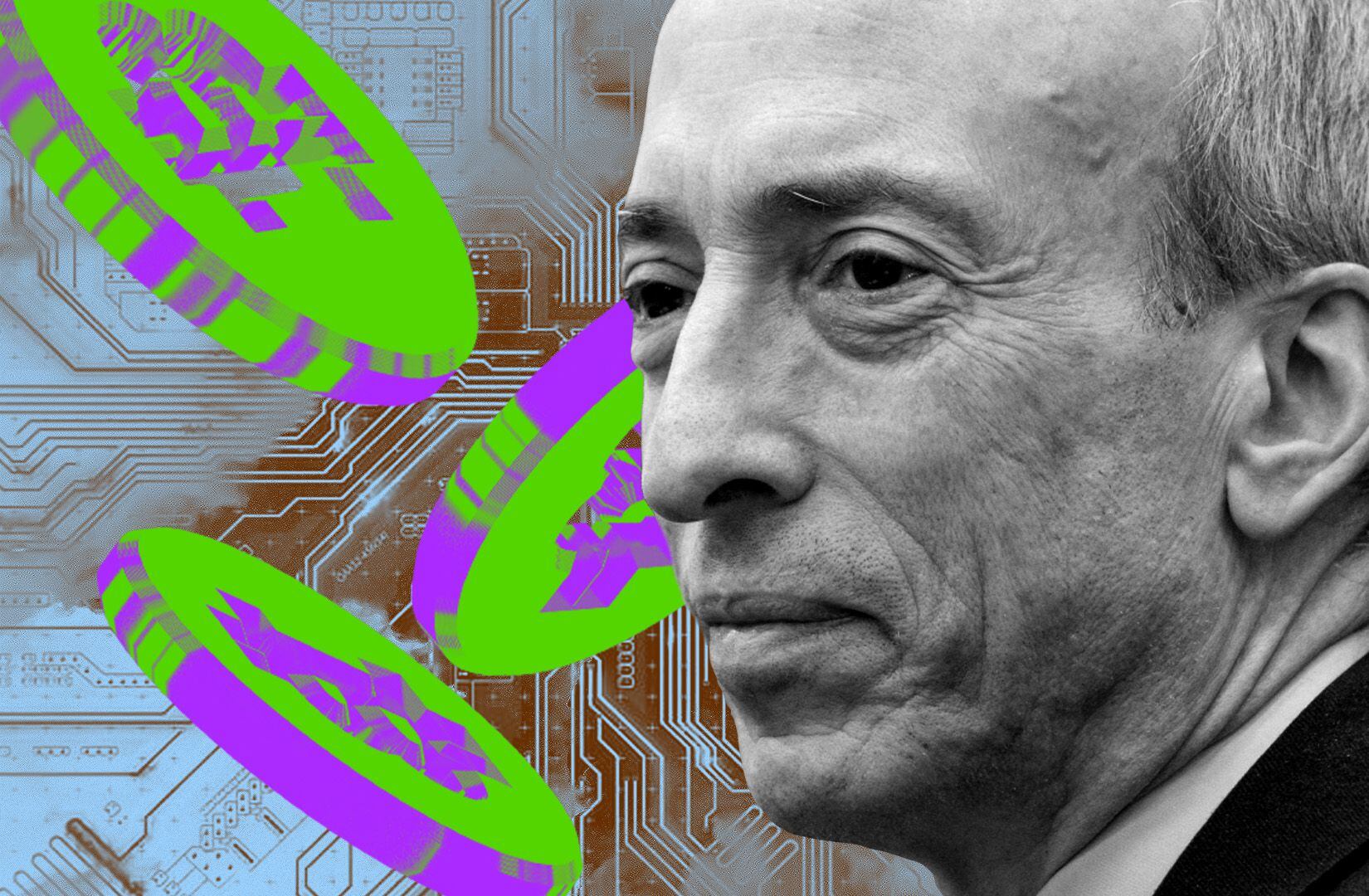A version of this story appeared in our The Guidance newsletter on January 12. Sign up here.
He might have hated every minute of it.
But Gary Gensler went ahead and gave his blessing to Bitcoin exchange-traded funds.
And they’re his legacy now.
“Gensler will go down as a Securities and Exchange Commission head who was widely seen as critical of the industry,” Sean Stein Smith, a professor at the City University of New York, told me.
Thanks to intense lobbying and pressure from finance giants, policymakers, and many in between, the SEC chair “ushered in a new era for Bitcoin, albeit reluctantly.”
Sure, the approvals process — that greenlit ETFs from BlackRock, Fidelity, and 10 other firms — was chaotic.
But when Gensler’s term is weighed in the balance, he’ll be remembered as the chair who okayed Bitcoin ETFs after a decade of rejections by his predecessors.
Gensler has given the asset management Goliaths what they wanted.
Haha good one!
Gary right now: pic.twitter.com/fyTOHDNHBz
— StayCool (@NFTWizart) January 10, 2024
And there’s no better way to neutralise Bitcoin than to let heavily-regulated firms take ownership of it and handle it on existing market structure.
The SEC understands these businesses and is used to working with them.
“This is good for the SEC, because they’re effectively finding a way to regulate this industry in a way that feels comfortable to them,” John Salmon, a partner at influential law firm Hogan Lovells and who leads its digital assets and blockchain practice, told me.
Gensler himself acknowledged that silver lining.
His statement included a line that ETF providers must provide extensive disclosures on their products, will be listed on exchanges, and will be subject to strict rules.
Political opposition
But Gensler still rang the refrain that has dominated his stance on cryptocurrencies — that they are speculative instruments promoted by grifters and scammers.
It’s a position that has led the SEC’s efforts to regulate and crack down on almost all crypto — besides Bitcoin, ironically, which Gensler considers the preserve of the SEC’s sister agency — and earned him the ire of crypto degens.
So it’s not surprising that crypto Twitter — ok fine, crypto X — likes to promote the idea that Gensler is on thin ice.
There’s no doubt Gensler has alarmed Congress, the crypto industry, and in TradFi, where his aggressive rulemaking agenda has been criticised.
His critics point to the lawmakers who have moved to get him fired, or, like House Financial Services Committee chair foe Patrick McHenry, taken every opportunity to poke holes in his leadership.
Gensler bears also like to point out that the SEC is getting hammered in litigation, with courts finding in favour of defendants like Ripple and Grayscale — both considered crucial tests of the SEC’s approach to regulating crypto.
And they take comfort in their hopes of a Republican victory in this year’s presidential election.
But are these really enough to unseat the chair before his term ends in 2026?
After all, McHenry’s influence is waning as he has announced his retirement.
As far as litigation goes, the Grayscale loss was a bad one, and resulted in the ETF approvals.
But other than that, the crypto industry can’t claim a big court win yet.
The XRP ruling was only a partial win. And it was rejected later by a federal judge in the Terraform case — a case that has so far handed wins to the SEC.
And a Republican victory is by no means assured.
So despite his obvious displeasure in approving Bitcoin ETFs, Gensler may be set for a strong run in the home stretch of his term — and remembered ever after as the chair who voted yes.
Want to opine on Gensler, or crypto reg in general? Email me at joanna@dlnews.com. For ETF tip-offs, email adam@dlnews.com.

![[Action required] Your RSS.app Trial has Expired.](https://8v.com/info/wp-content/uploads/2026/01/rss-app-cfAqZL-75x75.png)




















